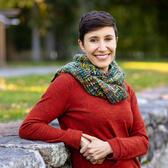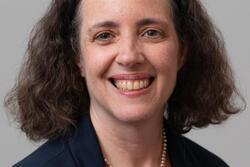Gertrude Elion: In a Class of Her Own
The 2007 Nobel Prize laureates in Physics were announced this week—Albert Fert from France and Peter Gruenberg from Germany, both credited for the first successful applications of “nanotechnology” to radically reduce the size while radically increasing the storage of computer hard-drives. With their impressive credentials, Fert and Gruenberg seem to fit the mold for this award in a profession in which male + Ph.D is a likely pairing. But following the announcement, I was pleasantly reminded of chemist Gertrude Elion, a 1988 Nobel Prize recipient, who most certainly did not fit this mold, and who didn’t think much of it: “Women in chemistry and physics? There’s nothing strange about that.”
Battling longstanding prejudices against women in science, Elion initially had trouble even getting a job, but a combination of brilliance, determination, and stubbornness brought her to the top of her profession. She developed the first chemotherapy for childhood leukemia, the immunosuppressant that made organ transplantation possible, the first effective anti-viral medication, and treatments for lupus, hepatitis, arthritis, gout, and other diseases. She was the fifth female Nobel laureate in Medicine, and the ninth in science in general. In rare form, she earned a Nobel Prize without ever earning a Ph.D.
With Elion’s achievements came her life-long encouragement of girls to pursue scientific careers. Late in her life, she wrote: "I hadn't been aware that any doors were closed to me until I started knocking on them" which propelled her desire to keep those doors open permanently. Even after her death in 1999, Gertrude Elion remains a significant role model who has paved the way for more young women to break barriers in science.
Learn more about Gertrude Elion in JWA’s Women of Valor exhibit.






